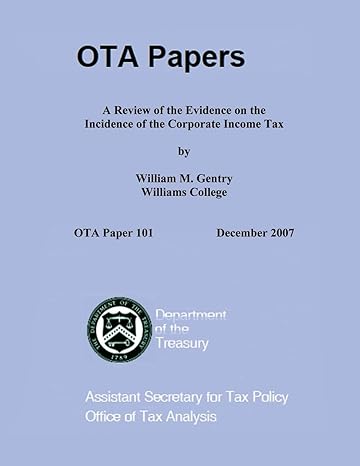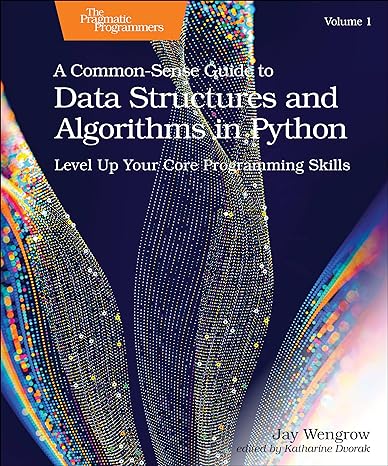Go back


OTA Papers A Review Of The Evidence On The Incidence Of The Corporate Income Tax(1st Edition)
Authors:
US Department Of The Treasury

Cover Type:Hardcover
Condition:Used
In Stock
Include with your book
Free shipping: April 03, 2024Popular items with books
Access to 3 Million+ solutions
Free ✝
Ask 10 Questions from expert
200,000+ Expert answers
✝ 7 days-trial
Total Price:
$0
List Price: $15.99
Savings: $15.99(100%)
Book details
ISBN: 150538978X, 978-1505389784
Book publisher: CreateSpace Independent Publishing Platform
Get your hands on the best-selling book OTA Papers A Review Of The Evidence On The Incidence Of The Corporate Income Tax 1st Edition for free. Feed your curiosity and let your imagination soar with the best stories coming out to you without hefty price tags. Browse SolutionInn to discover a treasure trove of fiction and non-fiction books where every page leads the reader to an undiscovered world. Start your literary adventure right away and also enjoy free shipping of these complimentary books to your door.
OTA Papers A Review Of The Evidence On The Incidence Of The Corporate Income Tax 1st Edition Summary: Who ultimately bears the burden of the corporate income tax plays an important role in the distributional analysis of tax policy. Distributional tables often assume that the incidence of the corporate income tax falls on the owners of capital but there is considerable uncertainty amongst economists about who bears the burden of the corporate income tax. This paper reviews the evidence on the incidence of the corporate income tax, especially in light of recent empirical studies that focus on the relationship between the corporate income tax and wages. While further research is necessary to draw definitive conclusions, these studies suggest that labor may bear a substantial burden from the corporate income tax. These empirical results are consistent with computable general equilibrium models based on an open economy in which a single country sets its tax policy independently of other countries; in these models, assumptions that capital is mobile and consumers are willing to substitute tradable goods produced in different countries imply that labor can bear more of the incidence of the corporate tax than capital bears.
Customers also bought these books
Frequently Bought Together
Top Reviews for Books
Khaled Alhashash
( 4 )
"Delivery was considerably fast, and the book I received was in a good condition."










